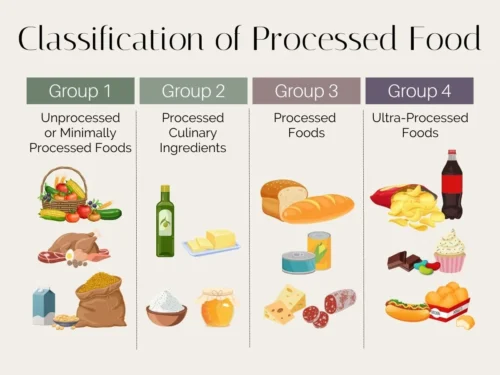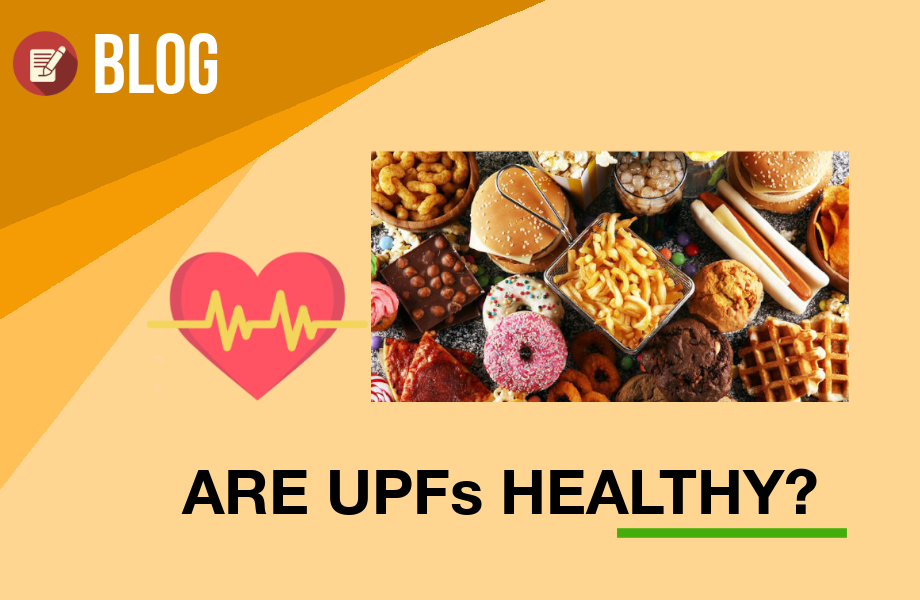Are Ultra Processed Foods Healthy? UPF’s Two Sided Reality
Ultra Processed Foods or UPFs have long been demonized. Studies have found that increased UPF consumption is linked with obesity and increased risk for chronic diseases like diabetes, CVDs or even cancer.
However, just like there are multiple shades of gray, the truth about UPFs is more complex than UPF =bad. A recent major study has found that regular consumption of bread and cereals – examples of ultra processed foods- can actually benefit your health, due to their high fiber content.
In the same paper, they also highlight that regular consumption of processed meat or high sugar drink does indeed decrease your health and future health prospect.
At a glance, it’s clear that the content and nutritional input of the ultra processed foods is more important than the fact that they are heavily processed.
This comes full circle when we speak about meal replacement shakes, as most of these contain ultra processed ingredients. However, the evidence shows that meal replacements are healthy, and that regular consumption can even improve health biomarkers.
Therefore, in this article, I want to explore the question of “are ultra processed foods healthy?” and dive into the nuance of it all.
What are Ultra Processed Foods?
The first question we need to answer, really, is what UPF means. This is where the problems start, as the definition of what is an ultra processed food and what’s not depends on the study.
According to wikipedia, ultra-processed food are industrially formulated edible substances derived from natural food or synthesized from other organic compounds. The resulting products are designed to be highly profitable, convenient, and hyperpalatable, often through food additives such as preservatives, colourings, and flavourings.
In a more simple way, UPFs are foods that you could not make in your kitchen.
The usual suspects or examples of UPFs are chicken nuggets, fried snacks, processed meats, cakes, cereals, bread, frozen meals, sodas etc.
Not all UPFs are Equal – Types of Ultra Processed Foods
This is where things get messy. In terms of nutritional output and value, not all ultra-processed foods are equal.
The most simple way to classify Ultra Processed Foods is by the NOVA classification:
- Unprocessed or minimally processed foods: Includes fresh, dried, ground, chilled, frozen, pasteurized, or fermented staple foods such as fruits, vegetables, meats, milk, and eggs.
- Processed culinary ingredients: Includes substances extracted from food, such as oils, fats, sugar, and sweeteners.
- Processed foods: Includes products made by adding salt, sugar, or other substances to unprocessed or minimally processed foods, such as canned vegetables, cheese, and freshly made bread.
- Ultra-processed food and drink products: This category includes industrial formulations typically with five or more and usually many ingredients. These processed products often contain little if any intact food. Examples include soft drinks, packaged snacks, and many ready-to-eat meals.
However, there are limitations to this system, as it doesn’t take into account any nutritional properties of the foods.

Are Ultraprocessed Foods Bad for Your Health?
Scientific Evidence Against Ultra Processed Foods
The current scientific understanding of ultraprocessed foods paints a fairly negative picture.
A study published in Cell in 2019, proved that ultra-processed foods cause excess calorie intake and weight gain. In a landmark study, 20 healthy individuals were assigned randomly to a diet with ultra-processed foods or without. During the periods that they were consuming ultra-processed foods, the participants tend to eat an extra 500kcal a day!
Among the many risks associated with a diet high in ultra-processed foods are the following:
- Increased incidence of Hypertension. Study.
- Increased risk in mortality. Study.
- Increased risk of cancer. Study.
Other studies have also found increased risk of obesity, diabetes type 2, and cardiovascular diseases among people who consume high amounts of ultra-processed foods.
Another area that’s emerging is the possible negative impact on your gut health. Higher consumption of UPFs can cause changes in your gut microbiota which can cause alterations in mental health, bowel movements, and even energy levels.
Risk of UPFs in Numbers
To put it into perspective here are some interesting stats:
- Every 10% increment of UPFs in your diet increases overall cancer risk by 2%, ovarian cancer by 19%, breast cancer by 16%
- People consuming less UPFs have a lower incidence of head and neck cancer
- People consuming the most UPFs have a 29% higher risk of colorectal cancer
Can Ultra-Processed Foods Be Healthy?
However, as pointed out above, the recent study conducted in 266,666 people all over Europe found out that some ultra-processed foods can indeed be beneficial for our health.
Despite the fact that in this study they agree with previous findings of increased likelihood of early death due to stroke or other health complications, they also found that some UPFs like bread and cereal can be beneficial.
Ultimately, the dangers of UPFs might be exaggerated by the fact that up to 60% of calories come from UPFs in some developed countries. This causes excessive calorie intake, and nutrient deficiencies like fiber deficiency, vitamin D deficiency, omega-3 deficiency etc. These deficiencies further aggravate any health issues.
Therefore, processed foods that are rich in nutrients (particularly vitamins and minerals) and phytonutrients (antioxidants, antiinflammatory agents, polyphenols…) could still offer a healthy proposition and mitigate many of the drawbacks associated with UPFs.
Our findings regarding UPF subtypes are partly consistent with recent studies that showed some heterogeneity in the results for subtypes of UPFs, with positive associations observed between consumption of artificially and sugar-sweetened beverages, animal-based products, sauces spreads and condiments, and the risk of type 2 diabetes, cardiovascular disease and/or certain cancers, but inverse associations for UPF cereals and whole grain breads and type 2 diabetes.
Cordova R, et al., 2023
How to Counteract a UPF Heavy Diet with Supplements
Allow me to start this section by saying that everything I will say is highly speculative.
However, many of the drawbacks of UPFs seem to steem from overeating, and not taking the essential nutrients. This is, creating an unbalanced diet with excess of calories and lack of nutrients.
Counteracting excess of calories should be done by accurately tracking what you eat, and having an active lifestyle – which has it’s own health benefits.
On the other hand, you could increase the input of nutrients with supplements and meal replacement shakes.
The latter can be a great addition, since they will allow you to control your calories while taking all the essential nutrients including omega-3, fiber, vitamins and minerals. The healthiest meal replacement shakes will even be done only with real food ingredients, minimally processed, and with superfoods that further increase the nutrient intake. For instance, Lyfefuel Daily Essential.
Alternatively, you can take supplements such as omega-3 supplements, multivitamins, superfood green powders, or fiber. Each will tackle areas where most of Western population is deficient on. For instance, only 7% of adults in the US eat enough fiber. Similarly, 35% of US adults have a vitamin D deficiency.
Conclusion – Are UPFs Healthy?
Taking everything into consideration, it is undeniable that consumption of ultra processed foods is not healthy.
Ultra processed foods lead to morbidity, increased risk of chronic diseases, site-specific cancers, and all increases all-cause mortality. The scientific evidence for this is overwhelming.
While not all the mechanisms are known the main factors are:
- UPFs lead to excessive calorie intake
- Contain potentially harmful ingredients
- Lots of nutrients are lost when the food matrix is broken down.
However, as the recent study found out, not all UPFs are equal, and some might even be beneficial. Those who have added fiber, added vitamins and minerals, or antioxidants could incorporate nutrients to our diets that we are otherwise missing.
This could be the missing link that could explain why meal replacements are actually healthy, and could lead to a new classification of UPFs.
That said, when possible consuming real food ingredients, lots of fruits and vegetables, balanced diets (like the Mediterranean diet), and reducing our dependency in UPFs will be extremely positive for our health.

